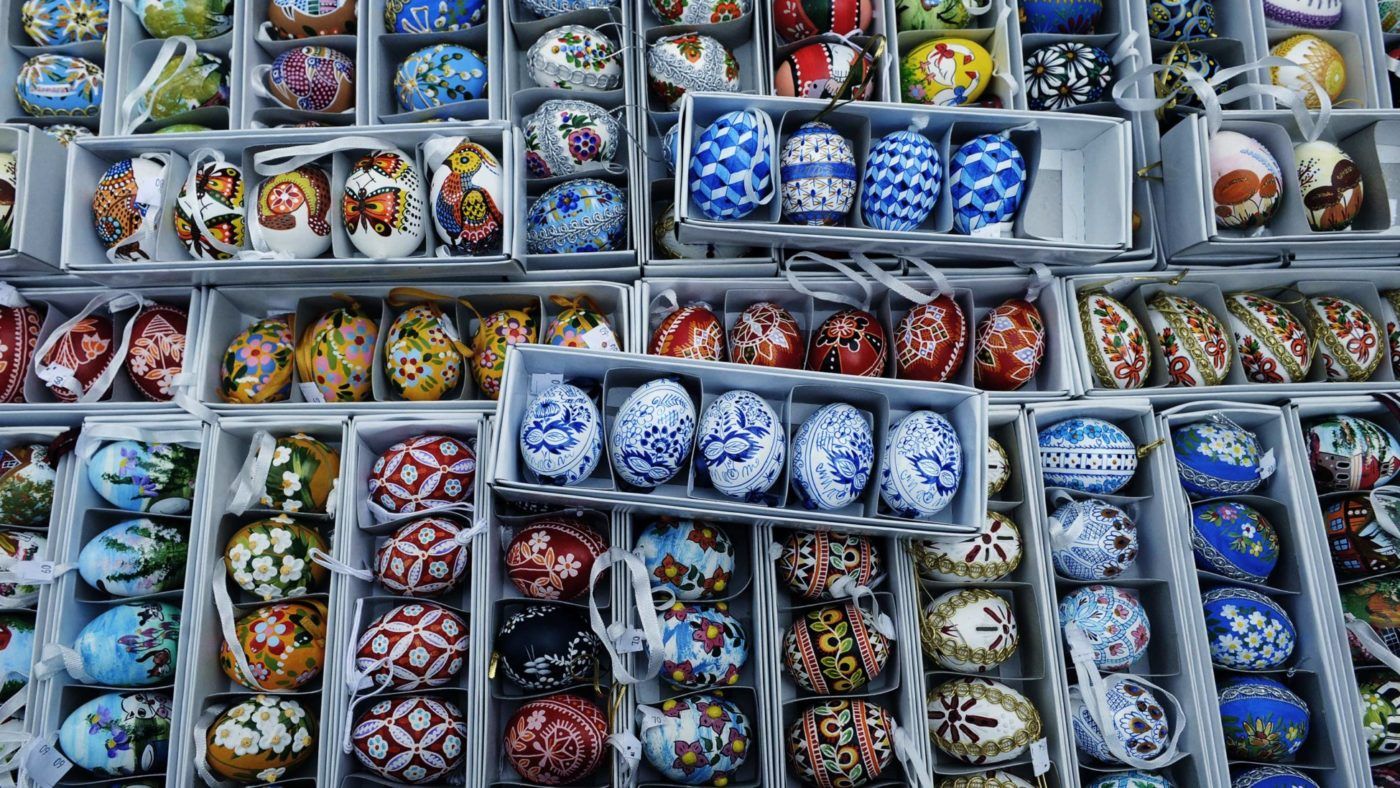This week, I’ve been trying to educate myself about the spirit of Easter. By reading a Cadbury’s factsheet.
A few weeks ago, you may remember, there was something of a paroxysm over the chocolate company’s apparent attempt – in collusion with the National Trust – to downplay the religious significance of Easter.
As I have said before, we must defend our Judeo-Christian culture and that means Easter. https://t.co/EBuoqakTzo
— Nigel Farage (@Nigel_Farage) April 4, 2017
Such complaints are nothing new. In his rather lovely book A Christmas Cornucopia, Mark Forsyth records Gregory of Nazianzus complaining in 386AD that the festive season had become all about “feasting to excess, dancing, and crowning the doors”.
The same is true of Easter. No sooner had theologians finally nailed down the dates of Christ’s birth and death (a process involving a quite extraordinary amount of argument), than people were complaining about other customs intruding. Most notably, for our purposes, those associated with the celebrations of the spring equinox and the pagan goddess of the dawn, Eostre – though to make matters more complicated, we only know about Eostre thanks to the Venerable Bede, who may have simply made her up.
For Christians, of course, the meaning of Easter is, and must be, about Christ. The agony of Good Friday and the ecstasy of Easter Sunday – individual suffering leading to universal salvation.
But in terms of its economic manifestations, it feels like the festival has had something of a bad press. There is plenty of academic writing on the meaning of Christmas – not least as a source of value destruction, as perfectly good £10 notes are exchanged for perfectly awful presents.
Yet there is nothing on Easter beyond the annual sets of retail sales figures and a few studies with titles like “Dear Mr Chocolate: Constructing a typology of contextualized chocolate consumption experiences through qualitative diary research”.
Which is why I found the Cadbury factsheet so genuinely uplifting.
It talks about how the first chocolate Easter eggs were made in France and Germany in the early 19th century, with chocolate being painstakingly pasted on to individual moulds. How the breakthrough came with “the greatest development in the history of chocolate” – “Van Houten’s invention in Holland of a press for separating cocoa butter from the cocoa bean in 1828 and the introduction of a pure cocoa by Cadbury Brothers in 1866”.
How “a method was found of making the liquid chocolate flow into moulds”, how William T Horry revolutionised carton design in the early 1950s by copying the set-up used for light-bulbs, creating the bright cardboard and plastic boxes we know today. How creme-filled eggs were invented, how machines were devised to automate “mould heating, depositing of the liquid chocolate, rotation of the moulds to achieve uniform thickness, cooling and de-moulding of the two halves of the egg”.
What is being described, in other words, is capitalism. Easter eggs, like Christmas presents, were not designed in a government laboratory. They evolved according to public demand and taste, splintering into dozens then hundreds of product lines from the humble Cadbury’s Creme Egg (of which 1.5 million roll off the Bournville conveyor belt every day) to a 100kg £25,000 novelty number modelled on a Fabergé ornament.
Think of the collective ingenuity involved. Think of the experimentation, the merchandising, the branding, the painstaking research into how to maximise lifespan while retaining taste. Think of the effort to make each egg look as large as possible from the outside, while containing the minimum amount of chocolate on the inside. And all of it for one simple purpose: to make money by making us happy. To that end, every Easter egg is a tiny triumph.
Some people, of course, will object to all of this. They will say that we’re forgetting the true meaning of Easter. That marketing is overpowering our meagre willpower and setting us on the high road to diabetes. That all that ingenuity could and should have been applied to curing cancer instead (the subject of a brilliant sketch from Mitchell and Webb).
But brainpower isn’t zero-sum. There isn’t a set total of scientists in the world, some of whom will be allotted to researching Alzheimer’s, others to improving the taste of Dairy Milk. Indeed, to get the former you need the latter, or what they represent: the innovation and exchange that create the wealth that funds universities and laboratories and philanthropy.
And as for the meaning of the season, if the purpose of the egg exchange was to maximise our sugar intake, the whole thing would be a fantastically inefficient way of going about it. But it’s not. It’s to show our loved ones that we love them – using the tools which the free market has so helpfully, and so expertly, provided.
This article is taken from the CapX Weekly Briefing. Subscribe here.


